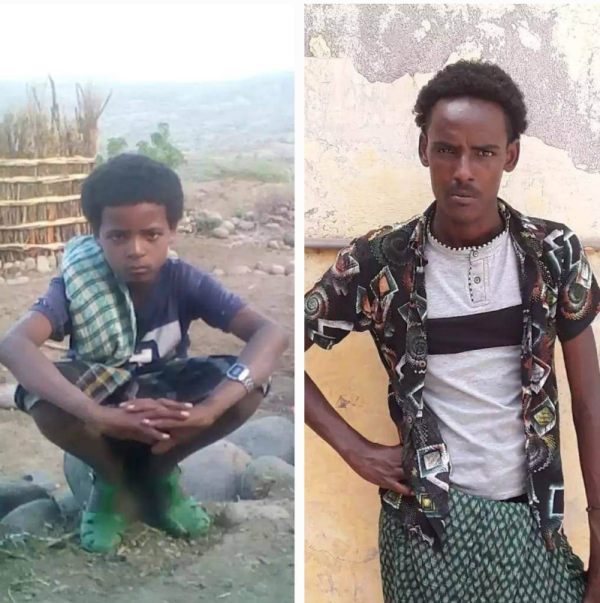OLLAA’s staff recently spoke with a family member of two young Wollo Oromos who were brutally murdered by Fano forces in the Amhara region, Shewa Robit.
Muhammad Umer and Aliyi Adam were relatives, as Aliyi was Muhammad’s uncle. Both were born and raised in Matahora, Jile Dumuga Woreda, Wollo zone, Ethiopia. Aliyi was 19 at the time of his death in seventh grade. Meanwhile, Mohammed was 15 years old and in fifth grade.
On April 30, 2023, they faced a difficult decision. With hopes of a better life and more opportunity for their families, they ultimately decided to leave their homeland. Despite the uncertainty of the future, they believed it was the right decision for their families, and so they took the plunge.
In the Amhara region of Oromo community zone, the people have experienced a great deal of hardship, from poverty to conflict. Despite these struggles, many of the younger generation have remained optimistic that they can change the situation. To change one’s life, there is a norm of migrating to other countries. This practice is often seen as an approach to enhance one’s future.
Muhammad and Aliyi had high hopes as they started their journey with a group of 15 other hopeful travelers. Their destination was Saudi Arabia in the hopes that they would be able to work and lift their families out of poverty. Unfortunately, the journey did not turn out as they had hoped. At Dabra Birhan, they were stopped by the Fano armed forces, and their dreams of a better future were dashed. Fano armed groups had turned their dreams of hope and a future into death and despair.

During their stop in Debra Birhan, “the victims called their families and expressed how they were abducted by Fano and their hope that one day they would be able to resume their journey and find the better life they hoped ” as family members spoke to OLLAA.
After spending two days in Debra Birhan, the victims were brought to Shewa Robit on May 1, 2023, where they were killed, according to a family member. The family member, who wished to remain anonymous, spoke to OLLAA that from the 15 travelers Ali Adam, Mohammed Umer, and 12 other Oromo young boys were tragically murdered by those armed forces except the one who managed to escape and return home.
The incident has since left a deep scar on the community, and the victims’ families continue to grieve. Families of these deceased children face tremendous grief and hardship, amplified by the inability to properly bury them.
Oromo communities are facing similar violations everywhere in Ethiopia, especially where the conflict is ongoing.

